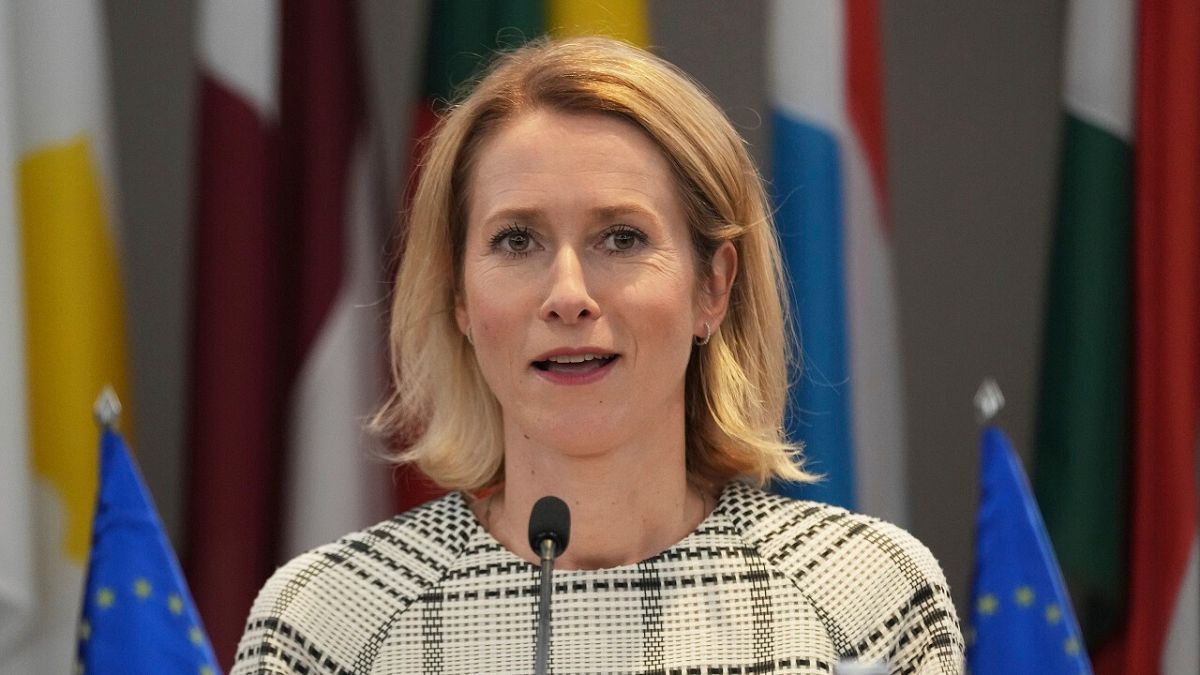Serbia’s EU membership “remains a strategic goal” yet depends on a “geostrategic choice” of direction, Kallas said Thursday after meeting Serbian President Aleksandar Vučić and government officials in Belgrade, the first stop on her broader Western Balkans tour.
“From my discussions with Serbian political leadership it is clear that EU membership remains a strategic goal,” Kallas said. “However, I want to emphasise that we need to see actions also to prove and support those words.”
“Reforms are how Serbia will advance along its EU path,” she added. “There are no shortcuts for membership. Real progress must be made here in Belgrade.”
The EU foreign policy chief also touched upon Vučić’s trip to Russia for the Victory Day parade in Moscow, a decision widely criticised by Brussels and Kallas, who earlier warned the Serbian leader not to travel to the Russian capital for the 9 May celebrations.
“I really don’t understand why it is necessary to stand side by side with (Russian President Vladimir Putin) who is conducting this horrible war in Ukraine,” Kallas added. “And President Vučić was explaining his side of the story. So, yes, we had a very extensive discussion about this.”
Vučić has previously said that “Serbia and the Serbian people made a huge contribution to the victory over fascism” in World War II, and that he was in the Russian capital to celebrate that fact.
“I talked about it back in October and told everyone I was travelling. I didn’t lie to anyone. I announced where I was going, unlike many others who did not announce it, so they ended up there,” Vučić explained after meeting European Council President Antonio Costa in Belgrade earlier this month.
Vučić has been criticised for maintaining close relations with Russia and China while formally saying that he wants Serbia to join the EU.
The government in Belgrade has also been under significant domestic pressure following seven months of large student-led anti-corruption protests, which erupted after a train station awning collapsed in the northern regional capital of Novi Sad on 1 November 2024, killing 16.
Kallas said she also met the protesting students and called for Serbia to make serious efforts to promote media freedom, combat corruption and implement electoral reform.
“These reforms will bring real benefits for the citizens and the people of Serbia as hundreds of thousands of protesters have been demanding in recent weeks. The autonomy of the universities must be respected,” she said.
Kallas also emphasised the need to normalise relations with Kosovo, Serbia’s former province which declared its independence in 2008. Most Western countries recognise its independence, but Serbia does not.
Brussels-mediated talks between the two have long been frozen, yet Kallas said normalisation is “fundamental for Serbia’s European future.”
“It is time to overcome the past a focus on the common future,” she said. “I plan to invite the representatives from Belgrade and Pristina to Brussels as soon as possible to discuss the concrete steps forward.”
The six Western Balkan countries are in different phases of accession, with Albania and Montenegro now considered frontrunners. Serbia, North Macedonia and Bosnia remain candidate countries, while Kosovo is still just a potential candidate for EU membership.
Russia’s full-scale invasion of Ukraine in February 2022 encouraged Europe’s leaders to push for the countries to join the bloc, fearing instability.
Kallas said she is “deeply committed to encouraging all the Western Balkan countries to really seize the current momentum that we have in the enlargement.”
“I want to see Serbia advancing towards the EU,” the EU foreign policy chief reiterated in a post on X following the meeting.
“For that, political leaders must deliver the necessary reforms and clarify the strategic direction. This is best done by restoring trust and staying true to democratic principles,” she added.
